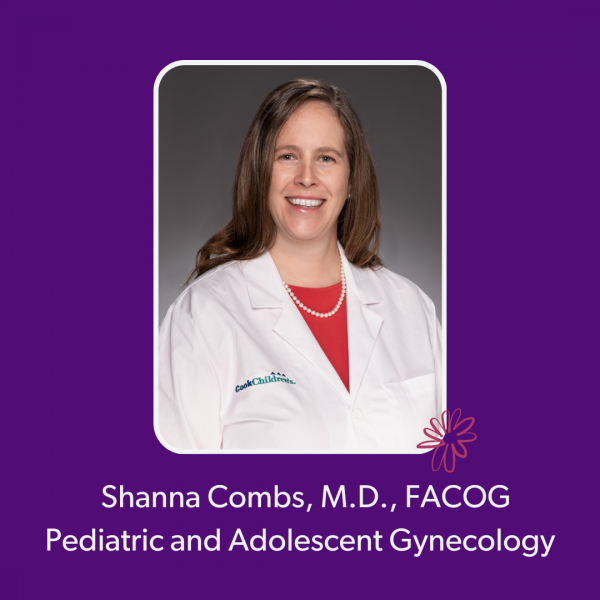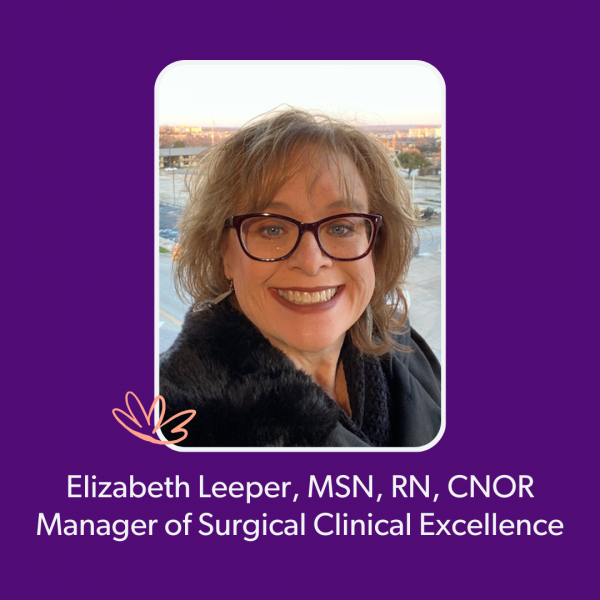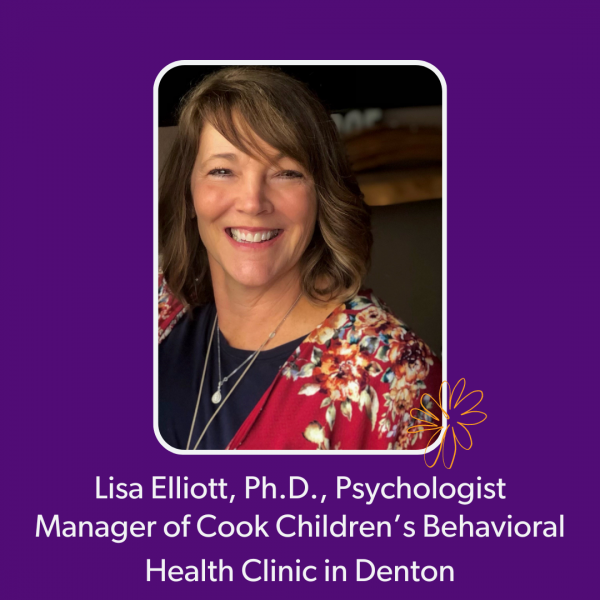A Legacy of Impactful Women at Cook Children's
This Women's History Month, we're taking a look at how Cook Children’s is shaped by women every day.
By Ashley Antle
March is Women’s History Month. While the country commemorates the role of women in American History, at Cook Children’s Health Care System, we celebrate the role of women in building one of the largest free-standing pediatric health centers in the country.
After all, it was the vision and generosity of two women that started it all.
One was a former postmistress with few financial resources, Mrs. Ida L. Turner, who dreamed of a place where fragile babies would be cared for regardless of their family’s ability to pay. Her vision and hard work led to the opening of the Fort Worth Free Baby Hospital in 1918.
The other was a wealthy heiress who wanted to honor her late husband by helping sick children. In 1929, Mrs. Missouri Matilda Nail Cook dedicated the oil royalties from the Cook Ranch to build the W.I. Cook Memorial Hospital.
Eventually, the two children’s hospitals became one and grew to be one of the finest pediatric medical institutions in the country with more than 1.5 million patient encounters every year.
Throughout our 105-year history, the women of Cook Children’s have championed children; nurtured the sick and hurting; led innovation in science, medicine and technology; and steered health care with imagination, safety, generosity, kindness, respect and collaboration.
While these women number in the thousands over the history of Cook Children’s, this year, we’re highlighting a few who have made their mark in medicine. Each woman comes from a different background, different specialty and different decade, but they all share two things — a passion for their work and the Promise to improve the well-being of every child in our care and our communities.
Shanna Combs, M.D., FACOG
Pediatric and Adolescent Gynecology
Years at Cook Children’s: 2 
Shanna Combs, M.D., is the first pediatric and adolescent gynecologist in the history of Cook Children's Medical Center. While her dad says she talked about wanting to be a doctor as a child, Dr. Combs chose to study ballet at Texas Christian University and initially pursued a career in dance.
But the desire to do something that would help people drew her focus back to medicine. Even then, Dr. Combs swore she would never be an OB/GYN. Her first rotation in women’s health changed her mind.
“I love the diversity of the field and taking care of women throughout their life,” Dr. Combs said. “Delivering babies, there is still nothing cooler. I do that for fun on the weekends.”
Dr. Combs unintentionally worked her way into the subspecialty of pediatric and adolescent gynecology (PAG).
When Dr. Combs first became a doctor, her OB/GYN clinic was a few floors above a pediatric health clinic, and her office received many referrals from pediatricians there. It turns out she really enjoyed treating children and teen girls. Years later, when Cook Children’s was looking for a gynecologist, Dr. Combs happened to be ready for a new challenge. The rest, as they say, is history.
In her Cook Children’s practice, Dr. Combs treats girls ages newborn to 22, with the majority being in the tween to teen stage. Most of the time she helps them navigate issues with menstruation. She treats medically-complex kids who need care for hormonal and menstrual issues. She also treats children diagnosed with an ovarian or pelvic mass.
“I have just always been passionate about taking care of little ladies,” she said of her transition into full-time pediatric medicine.
Dr. Combs says the PAG subspecialty is fairly new to the world of obstetrics and gynecology. There are only 18 academic medical centers in the United States with PAG fellowships, according to the North American Society for Pediatric and Adolescent Gynecology.
Her advice to women considering a career in medicine is to choose an area that they really love.
“Pick your passion,” she said. “That’s the secret sauce. If you pick what you're passionate about and you enjoy the work you do, then you'll never go wrong.”
Elizabeth Leeper, MSN, RN, CNOR 
Manager of Surgical Clinical Excellence
Years at Cook Children’s: 27
Elizabeth Leeper has been a staple in Cook Children’s surgery department since she began as an operating room nurse in 1996. Today, she is the manager of surgical clinical excellence, a role she pioneered in 2017 and built from the ground up. So far, she is the first and only one to hold the position.
Leeper and her team of three reviews every single surgical case at Cook Children’s Medical Center to monitor for quality and safety. It’s no small feat for her small department. Under Leeper’s leadership, their hard work earned Cook Children’s a Level I designation as a Children’s Surgery Verified program from the American College of Surgeons.
To achieve this designation, hospitals must meet a rigorous set of safety standards and demonstrate they have the resources needed to provide children with high-quality surgical care. There are only five pediatric hospitals in Texas with this designation, and Cook Children’s was the first in North Texas to be named a Children’s Surgery Verified program in 2019.
“By the time I finished our application, it was over 100 pages,” Leeper said. “They look at any part of the hospital system that might potentially touch a patient and want to know information about that. I had to gather information from the lab, pharmacy, radiology, transport, all our surgeons, administration … you name it. I'm in the middle of our renewal application right now, so I'm working on pulling that information together.”
Leeper doesn’t mind the endless information collection and review. She follows in the footsteps of her childhood inspiration and founder of modern professional nursing, Florence Nightingale, who also used statistics and data to improve health care as far back as the mid-1800s.
“I discovered how much of a data nerd I really am,” she said.
Today, Leeper draws inspiration for life and work from her daughter.
“We have an adult daughter with a really rare neuromuscular disease,” she explained. “She lives with us and is wheelchair-bound. Knowing that she gets up every day and watching her deal with what she has to deal with, I know that if she can do it, I can do whatever is before me.”
When the load gets heavy, Leeper leans on her faith and prayer to carry her through.
“Just being able to know that there is a God, and he does love us and that he takes care of us is an important part of my life,” she said. “I know that he's there even though, sometimes, it's hard to see.”
Lisa Elliott, Ph.D., Psychologist 
Manager of Cook Children’s Behavioral Health Clinic in Denton
Years at Cook Children’s: 29
Psychology is a second career for Lisa Elliott. Initially, a human resources director with a degree in business, Dr. Elliott began taking psychology classes to better understand how to help the employees she represented.
“I would have to call in employees for failure to show up to work, wage garnishments or disciplinary actions, and there were always reasons for that, like family, emotional or mental struggles,” she said. “So I decided to enroll in a couple of psychology courses where we were living at the time to understand how I could better help our employees.”
Dr. Elliott found the courses fascinating and impressed her professors, who encouraged her to continue her path in the field. She eventually applied and was accepted to the doctoral program at the University of North Texas where she specialized in neuropsychology.
Dr. Elliott calls herself a non-traditional neuropsychologist because she uses both the therapy side of psychology and the testing and research side of neuropsychology.
“I always thought I wanted to do therapy, but that's when I felt like you could nurture anyone into health,” Dr. Elliott said. “Then I discovered that nature and what a child is exposed to in utero is a huge piece of this, too. That's when I changed and recognized the value of testing and started a huge focus also in neuropsych.”
In 1994, she developed and opened Cook Children’s first outpatient behavioral health therapy clinic in a 500-square-foot office in Denton. Within months, demand for the service forced the clinic into a bigger space.
Dr. Elliott mentors and trains the next generation of neuropsychologists, too. For 22 years, she has led a neuropsychology fellowship program that provides training for people completing graduate degrees and requirements for full licensure.
While impactful, neither of these accomplishments makes her proudest moments list. For that, she thinks only of her patients.
“This isn’t about me,” she said of her work. “What gets me in my little happy zone is actually when I see my patients’ success and see them excel, thrive and take pride in the coping skills they've learned and their increased self-confidence and self-esteem, that brings me to tears.”
When adversity comes, Dr. Elliott turns to prayer and leans on her source of hope — her faith in God. Then, she looks for ways to serve others.
“I've always decided that not only do I want to look for the helpers when there is trouble, but I want to be the helper,” she said. “I want to model that hope, kindness and compassion. When we are doing for others, that also helps us through our own personal adversity.”
 Carla Smith, D.O., FACOP, FAAP
Carla Smith, D.O., FACOP, FAAP
Pediatrician at Cook Children’s Pediatrics Burleson
Years at Cook Children’s: 14
Carla Smith, D.O., was a member of one of the first graduating classes at the University of North Texas Health Sciences Center in 1979 — one of only three females out of 70 students. Even so, she doesn’t consider herself a trailblazer for women in medicine.
“You become a family with the people that you spend that much time with,” Dr. Smith said. “As students, we all just wanted each of us to succeed, not caring if we were male or female.”
Dr. Smith can’t remember a time when she didn’t want to be a doctor. She knew, even as a child, that she would pursue a career in medicine. The desire to be a pediatrician came during her pediatric rotations in medical school.
“I realized how much I enjoyed working with children and their zest for life and wellness,” she said. “And possibly a little bit of selfishness as I realized that children love to be well, and they could make me laugh and help me keep a young and healthy attitude.”
Dr. Smith was one of the first locums doctors for the system. A locums doctor works temporarily for another physician. She initially worked part-time for a Cook Children’s physician in Granbury who needed a day off each week to be with her young children. Dr. Smith went on to work temporarily at many local physician offices when they needed someone to fill in.
Then, in 2010, Cook Children’s built a clinic in Burleson, where Dr. Smith has lived since 1995. She jumped at the chance to work full-time in her own community.
“I was hired, as was Dr. Lanna McClain, and I can honestly say that we both cried when we arrived at our beautiful office for the first time,” she said. “That is my proudest moment, the opening of the Burleson office, and being able to work in my hometown! It has now been open for 13 years. A fantastic office with three physicians, two nurse practitioners, a great office manager and a great staff.”
The journey to becoming a pediatrician wasn’t always easy, she said, but Dr. Smith wants other women considering a career in medicine to know the hours of study, training and sacrifice were worth it. And when they get overwhelmed, to do what one of her professors once told her: “Take it one step at a time.”
Candace Gamble, M.D.
Medical Director, Genetics
Years at Cook Children’s: 7
As a geneticist, Candace Gamble, M.D., puts together the pieces of a patient’s genetic puzzle, including medical and family histories and genetic testing results, to identify an underlying disorder. Once a diagnosis is made, she and her team help patients and their families navigate their health care needs through counseling and advocacy.
In college, Dr. Gamble thought she wanted to be a lawyer, but after a little more than a year following that path, she realized her heart wasn’t connecting with the legal profession. So she pivoted and found her calling in the biological sciences.
“I look at my work as a calling when the days and weeks become difficult, so my faith is what does it for me,” Dr. Gamble said of what gets her through adversity. “I’m not sure I could have made it through this long journey to medicine without my faith foundation. It’s not about me and my accomplishments, but about my divine purpose.”
Watching her team work together to find creative solutions to overcome recent staffing challenges is one of her proudest moments at Cook Children’s. Dr. Gamble said each person in her department, from administration to clinical staff to the nurse practitioners and fellow doctors, has been incredible team players and instrumental in developing creative solutions to continue to meet their patient’s health and well-being needs.
“I love caring for our patients but my work family in genetics makes it so much easier,” she said.
During her residency, and thanks to the influence of one of her mentors, Dr. Gamble became interested in the study of skeletal dysplasias, a category of rare genetic disorders that affect a baby’s bones, joints and growth. She has been an investigator in several skeletal dysplasia research studies and a contributor to many publications.
“Much of the research I have done was all natural history studies, learning more about the disease process and how they affect patients,” she said. “But now we are entering an exciting time where treatment options are available for specific conditions and patients and families that desire treatment. One example of this is vosoritide, a daily injection that can be used for those with achondroplasia, which is the most common skeletal dysplasia, to increase final adult height.”
Having a mentor, she said, kept her moving forward in the pursuit of her passion. Dr. Gamble encourages other women working towards a career in health care to find someone, in medicine or another profession, that will hold them accountable to their dreams and goals.
“Those dreams were put upon your heart for a reason, and I truly believe they are part of your destiny and purpose,” she said. “Having a mentor is especially important for women of color who may lack access to tangible representation in a certain field.”
